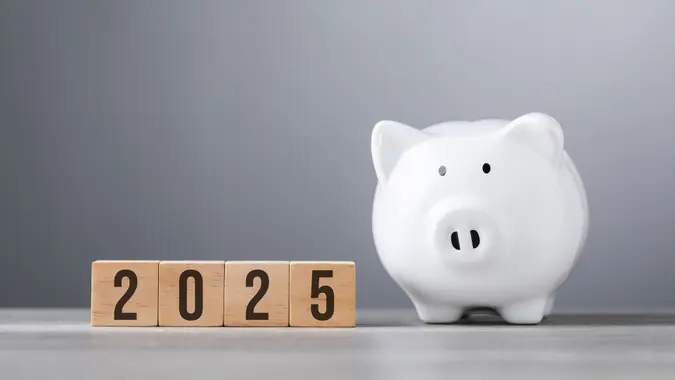GOBankingRates works with many financial advertisers to showcase their products and services to our audiences.
These brands compensate us to advertise their products in ads across our site.
This compensation may impact how and where products appear on this site.

Commitment to Our Readers
GOBankingRates' editorial team is committed to bringing you unbiased reviews and information.
you might read more about oureditorial guidelinesand our products and servicesreview methodology.
20 YearsHelping You Live Richer
Reviewedby Experts
Trusted byMillions of Readers
Life is unexpected.
You may go to work tomorrow and find out youre getting araise.
That scratch-off lottery ticket you bought last week may now be worth $5,000.
A distant relative you barely knew may leave you an inheritance.
More often than not, however, the opposite scenarios are true.
You may have an expensive medical emergency.
Your car may break down on the highway.
You may get laid off without any prior notice.
Such events can lead to huge financial burdens for which you may not be ready.
According to aGOBankingRates survey, 37% of Americans dont have anything saved up in case of an emergency.
Building up an emergency fund is one way to prepare for such unexpected expenses.
Heres a quickguide on how you might start saving from scratch.
Get Started Now
If you dont have any money saved, you should probably start today.
Many people set financial goals for themselves without taking any next steps toward saving for emergencies.
Considering thenumerous upcoming expensesright now, they believe they can safely start saving sometime down the line.
He said, Whatever the reason, youre only hurting yourself by not beginning immediately.
after you grab a financial plan, you’re able to ride the momentum and start right away .
If your company sends your paychecks to your bank account, Sethi suggests you add this simple step.
First, decide on how much money you want to add to your emergency fund each month.
Then, set up an automated transfer to send that amount to adesignated savings accountthe day after payday.
The best part is that with anautomated paycheck routine, your emergency fund will start to build itself.
However, its important to track your spending so that you know where your money is actually going.
Dave Ramsey, founder of Ramsey Solutions, breaks down how to track your expenses.
First, create a list of all of your fixed monthly expenses, like rent and car payments.
Next, document exactly where that money goes over a month.
But dont stop there continue to track your spending over time.
As you cut back more and more, youll have even more to put into your emergency fund.
Make Sacrifices
Meeting your financial goals and building an emergency fund wont always be easy.
Itll takedetermination and sacrifice.
This could be not going on vacation or driving your old car for longer.
Whatever the sacrifice, the funds you save should be added to your emergency fund.
More From GOBankingRates
Share This Article:



